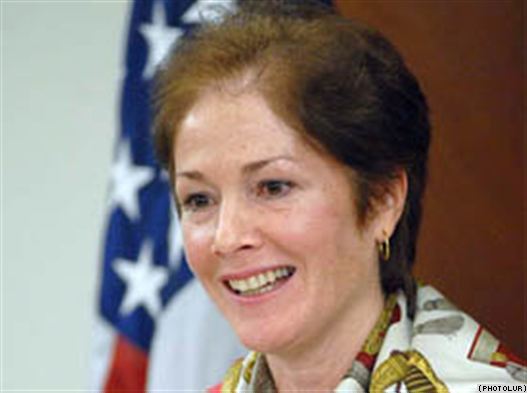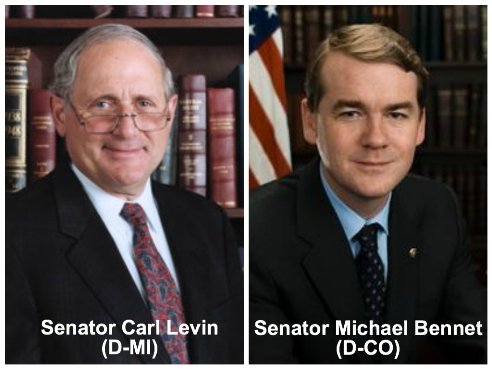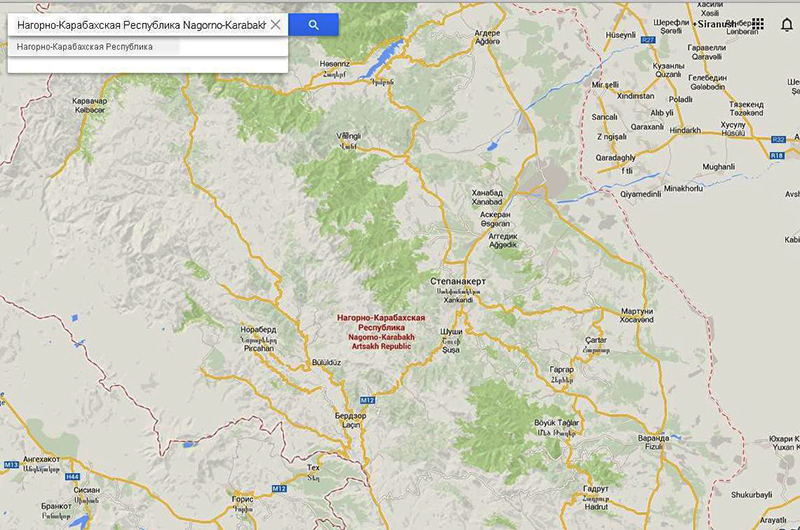United States Ambassador to Armenia Marie Yovanovitch has described her latest meetings with members of the Armenian American community as “useful” as she gave an exclusive interview with RFE/RL in Washington.
Yovanovitch made a similar tour a year ago, as her predecessors had done before. The diplomat’s itinerary this year included Philadelphia, Detroit, Los Angeles and San Francisco.
“I think it’s just useful because there are so many Americans of Armenian origin who are doing interesting and important things in Armenia,” she said on Sunday after just completing travel to the four American cities within a space of 10 days.
“So it’s interesting for me to hear what they’re doing. And I think if I may say, it’s interesting for them to hear what we’re doing, because we’re doing a lot in the various areas across the sectors and I think it’s useful to have that exchange and useful to have face to face communication and try to build bridges with a very large part of the Armenian population in the world,” the U.S. ambassador said.
Yovanovitch said a wide range of issues – from the usual concerns about Congress passing the genocide resolution, the U.S. role in the OSCE Minsk Group’s efforts to resolve the Nagorno-Karabakh conflict and Turkish-Armenian normalization to advancing democracy and issues of the Armenian economy – had come up for discussion.
“And obviously I shared the U.S. position on those issues. I think the important thing is that, I think the Armenian American community is intensely interested in everything that is happening in Armenia as it progresses in its democratic transition, how things are going economically. And then, security issues are absolutely vital in a country with four borders, two of which are closed, and you know, what is Armenia doing and what is the U.S. doing to help,” said Yovanovitch.
The U.S. ambassador also responded to concerns voiced by some analysts in Yerevan who are wondering why the most recent statement by the Minsk Group referred to the capital of Nagorno-Karabakh by its Azeri name, Khankendi, rather than Stepanakert – the internationally accepted name it has always used.
Asked whether she was “aware of any policy change on this” or was “this reference a reflection of pressure from Baku”, Yovanovitch said: “I am familiar with that statement and I think the way the Minsk Group co-chairs referred to the capital of NK was Stepanakert slash (/) Khankendi and that’s not a change. The co-chairs have referred to the capital in that way before.”
The U.S. ambassador to Armenia also commented on the question regarding the U.S. Senate putting on hold the White House’s choice for ambassador to Azerbaijan, former top U.S. negotiator on Karabakh Matthew Bryza.
“That’s obviously a matter for the U.S. Senate. Matt Bryza enjoys the full confidence of the president and the secretary of state. He’s got great background for this post and so obviously we hope that he will be confirmed. But again, it’s a matter for the U.S. Senate,” she said.
Commenting on the Turkish-Armenian rapprochement process that has now stalled despite the sides’ signing of two protocols last October aiming at achieving normalization, Yovanovitch voiced some hope that Armenia and Turkey will “move forward” at some point.
“Simply because it is unimaginable to think that forever there will be a closed border between Turkey and Armenia. I think at some point the moment is going to be right and the U.S. stands ready to help both sides move forward,” she said. “There are protocols, we hope that at some point the countries will want to ratify them and move forward in the normalization process. Right now we’re very focused on trying to bring the peoples of the countries together – in various confidence building measures, trying to do civil society exchanges. We think that’s very important because it creates a larger space for communication, for mutual understanding and maybe helps politicians move forward as they grapple with some of these difficult issues.”
The U.S. ambassador to Armenia also described as a positive step that Turkish authorities have eventually erected a cross on top of a recently renovated medieval Armenian church near Van, in Turkey, where the first service in nearly a century was allowed last month.
The service attracted hundreds of Armenian visitors, but many had refused to go to Van citing as the reason the failure of the Turkish authorities to erect the Christian symbol atop the Holy Cross Church in time for the September 19 service.
“I think that what we’ve seen is that the cross is now on top of the church, so that’s a positive step. And I think we looked at the service as a positive step, as well. And hope that there can be more of that, and hope that Armenians and Turks together can move forward, they’re neighbors and it’s important to try to, like I said, find a space for mutual understanding,” she said. “And that’s hard – hard because of the history, hard in many ways, but I don’t really see any other alternative. So people of good faith – and I know some would say, how naive can she be to say that? – but people of good faith need to come together and to try to create the conditions for that political process and for progress on the political side.”
Yovanovitch also commented on Iranian-Armenian relations that are said to have been getting closer lately.
Asked whether Washington was at all concerned by those growing ties in light of the recent visit of Iranian parliament speaker Ali Larijani to Yerevan and his praise of Iran’s “deepening relations with Armenia” and denouncing “U.S. policy in the region” (in a speech at Yerevan State University), Yovanovitch said that “Armenia’s relationship with Iran is a bilateral one.”
“Iran is one of Armenia’s neighbors and over the years it’s been an important neighbor because it’s one of the two open borders for Armenia, so for reasons of commerce, for energy reasons, that’s an important relationship. Armenia’s relationship with Iran is a bilateral one. Clearly, the U.S. has concerns with regard to Iran’s nuclear posture and so, that is something that we expect all member countries of the UN – including Armenia – to uphold, the UN Security Council resolutions and the sanctions,” the U.S. ambassador concluded.
The Positive Outcomes of the Brussels Meeting
By: K. KHODANIAN Last September, Azerbaijani troops invaded Artsakh, prompting over…
- MassisPost
- April 14, 2024
- No comments
- 2 minute read
It’s Not Armenia That Has Distanced Itself From Russia, but Rather the Other Way Around
By K. KHODANIAN Armenia and Russia are experiencing notable tensions in their…
- MassisPost
- April 7, 2024
- No comments
- 2 minute read
Stating the Obvious: Kigali Genocide Memorial and the Armenian Genocide
Gomidas Institute Initiates Campaign on Kigali Genocide Memorial and the Armenian…
- MassisPost
- April 7, 2024
- No comments
- 3 minute read
How an Armenian Family Helped in Building Modern Egypt
By ARUNANSH B. GOSWAMI Recently the author of this article was in…
- MassisPost
- April 5, 2024
- No comments
- 5 minute read










